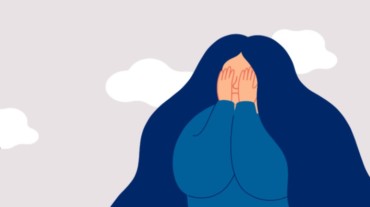
The hustle culture today propagates work, work, and more work. Unfortunately, that leaves us with hardly any time to focus on what we love. And that could sometimes be due to anhedonia!
How many times have you found yourself taking some time off to play the guitar or dance to your favourite tunes? Can’t remember? Well, that’s how life is today! But there are so many times when you want to sit with your legs up and read a good book. Or maybe enjoy a relaxing massage to unwind post-work? What if you’ve always loved something but have suddenly lost interest in those things? It could be a temporary phase, because of increasing work pressure. But if your disinterest continues, and you experience a decreased ability to feel pleasure, it’s highly likely that you are going through anhedonia.

Yes, we know it sounds like a complicated term. But remember it, because it could be a big sign of a major depressive disorder. This could also be a symptom of some other mental health disorders.
Absolutely, there are two kinds — social and physical anhedonia. The first one, as the name suggests, is all about a lack of interest in social contact, as well as lack of pleasure in social situations. The second kind is when you lose interest in eating, touching or having sex.
There are certain symptoms that are commonly experienced in both kinds of anhedonia:
It is important to understand that anhedonia is one of the biggest symptoms of depression, but not everyone who has depression experiences anhedonia. In certain cases, the frequent use of antidepressants and antipsychotics can cause anhedonia. What’s more, social anhedonia is a risk factor for schizophrenia. It could also happen due to excess drug use or large amounts of stress or anxiety.
Also Read: Social anxiety 101: What is it and when to seek help for it

Those who have a family history of depression or other mental health disorders do have an increased risk of anhedonia. It could also be triggered by a recent traumatic event, history of abuse, an illness, or even an eating disorder.
It is important to see a mental health practitioner, who will ask about your symptoms and general mood. Make a note of all your symptoms before your appointment. Be as coherent as you can, so that the diagnosis happens in the right manner.

Sometimes, treating anhedonia can be difficult, because it is linked to a larger problem, say depression. To start off with, you could go to a general physician, who could then refer you to a psychiatrist, psychologist or any other mental health professional. Your treatment could then include medications like antidepressants and in some cases, electroconvulsive therapy. This therapy is only used when other treatments do not work.
Select Topics of your interest and let us customize your feed.
PERSONALISE NOWSometimes, transcranial magnetic stimulation is also used to stimulate nerve cells.